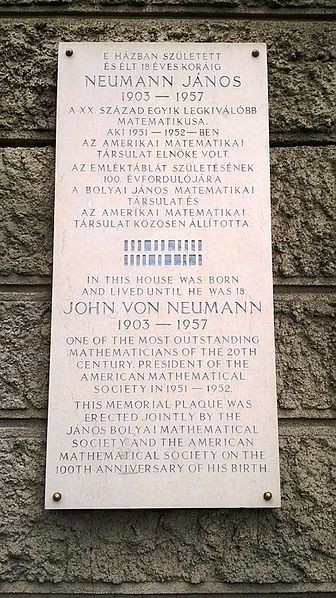John von Neumann was a Hungarian and American mathematician, physicist, computer scientist, engineer and polymath. He had perhaps the widest coverage of any mathematician of his time, integrating pure and applied sciences and making major contributions to many fields, including mathematics, physics, economics, computing, and statistics. He was a pioneer in building the mathematical framework of quantum physics, in the development of functional analysis, and in game theory, introducing or codifying concepts including cellular automata, the universal constructor and the digital computer. His analysis of the structure of self-replication preceded the discovery of the structure of DNA.

Excerpt from the university calendars for 1928 and 1928/29 of the Friedrich-Wilhelms-Universität Berlin announcing Neumann's lectures on the theory of functions II, axiomatic set theory and mathematical logic, the mathematical colloquium, review of recent work in quantum mechanics, special functions of mathematical physics and Hilbert's proof theory. He also lectured on the theory of relativity, set theory, integral equations and analysis of infinitely many variables.
Von Neumann's gravestone
Von Neumann's memorial plaque on the wall of his birthplace in Budapest, 5th district Báthory u. 26.
Flow chart from von Neumann's "Planning and coding of problems for an electronic computing instrument", published in 1947
A polymath is an individual whose knowledge spans a substantial number of subjects, known to draw on complex bodies of knowledge to solve specific problems.
Benjamin Franklin is one of the foremost polymaths in history. Franklin was a writer, scientist, inventor, statesman, diplomat, printer and political philosopher. He further attained a legacy as one of the Founding Fathers of the United States.
The Developmental Model of Polymathy (DMP)






